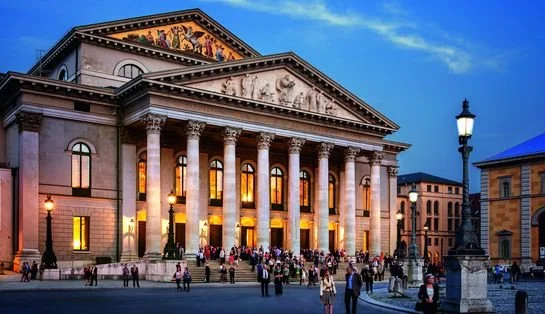
Káťa Kabanová
In Leoš Janáček’s opera, Kát’a Kabanová, the eponymous heroine is ensnared at the heart of an ominous mesh of relations. Her domineering mother-in-law, Kabanicha, oppresses and controls her son Tichon, whose marriage to Kát’a suffers massively from heteronomy. Because Kát’a finds no fulfilment in this family, she flees and fulfils her unsatisfied erotic desires in an affair with Boris. As composer and librettist, Janáček bundles the plot of the literary template, Alexander N. Ostrovsky’s drama, The Storm. The libretto largely dispenses with the portrayal of the external social circumstances, from whence Kát’a’s essence and choices are decisively determined. Instead, Janáček traces the development of the title character in a psychological-sensitive musical language. Kát’a’s feelings of guilt increase continuously until they discharge into a public confession as an emotional storm. The turbulent and in places fanciful music opens the space for passages of lyrical grace and allows us to experience the essence of the characters. In Kát’a, director Krzysztof Warlikowski sees an outsider, who is denied a life in harmony with her desires, and at the end prefers death over lies. The destructive power of religion behind it all is not only found in a small Russian town on the banks of the Volga in the 1860s, where the libretto places the plot, but rather can also be seen everywhere all over the world.
Cast
Conductor
Production
Set Design
Lighting
Video
Choreography
Choruses
Dramaturgy
Savjol Prokofjevič Dikoj
Boris Grigorjevič
Marfa Ignatěvna Kabanová (Kabanicha)
Tichon Ivanyč Kabanov
Katěrina (Káťa)
Váňa Kudrjáš
Varvara
(2025: Mar 17, 21, 24, 27, 30)
(2025: Jul 07)
Kuligin
(2025: Mar 17, 21, 24, 27, 30)
(2025: Jul 07)
Glaša
Fekluša
Bayerisches Staatsorchester
Chorus of the Bayerische Staatsoper





